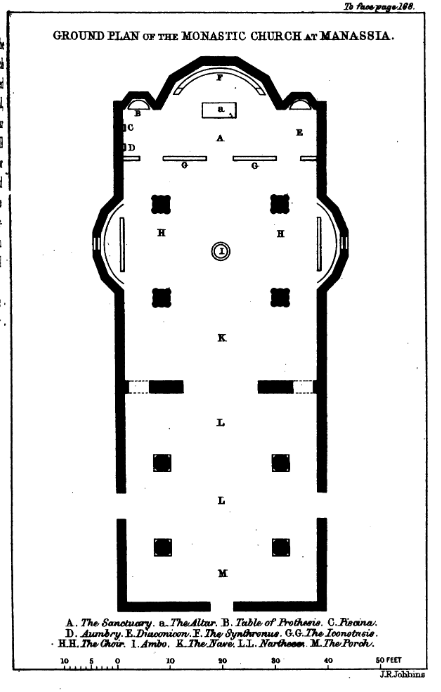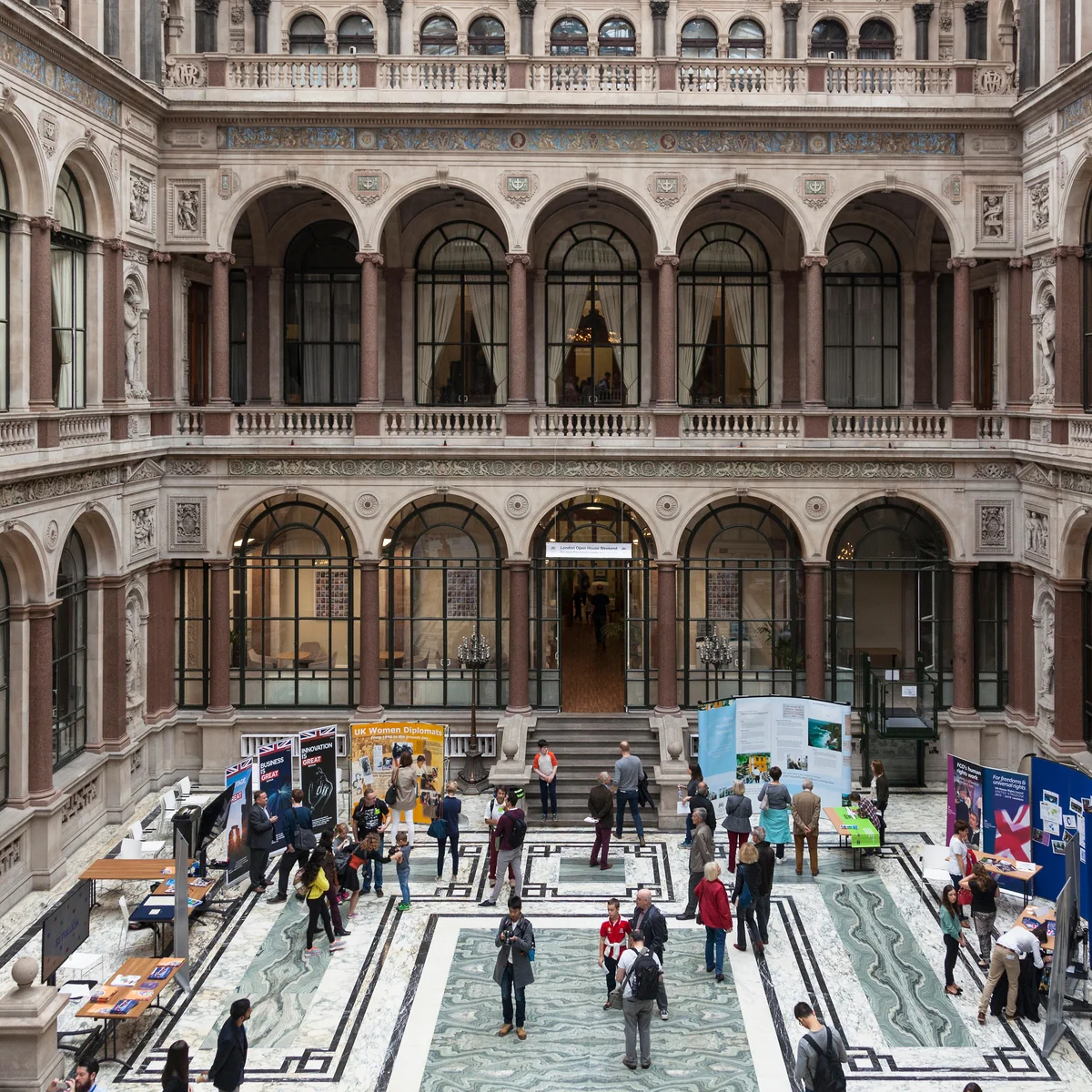SERVIA,
YOUNGEST MEMBER OF THE EUROPEAN FAMILY:
OR, A
RESIDENCE IN BELGRADE,
AND
TRAVELS IN THE HIGHLANDS AND WOODLANDS OF THE INTERIOR,
DURING THE YEARS 1843 AND 1844.
BY
ANDREW ARCHIBALD PATON, ESQ.
Manasia—Has preserved its middle-age character.—Robinson Crusoe.—Wonderful Echo.—Kindness of the people.—Svilainitza.—Posharevatz.—Baby Giantess.
Next day, accompanied by the doctor, and a portion of the party of yesterday, we proceeded to the convent of Manasia, five hours off; our journey being mostly through forests, with the most wretched roads. Sometimes we had to cross streams of considerable depth; at other places the oaks, arching over head, almost excluded the light: at length, on doubling a precipitous promontory of rock, a wide open valley burst upon us, at the extremity of which we saw the donjons and crenellated towers of a perfect feudal castle surrounding and fencing in the domes of an antique church. Again I say, that those who wish to see the castellated monuments of the middle ages just as they were left by the builders, must come to this country. With us in old Europe, they are either modernized or in ruins, and in many of them every tower and gate reflects the taste of a separate period; some edifices showing a grotesque progress from Gothic to Italian, and from Italian to Roman à la Louis Quinze: a succession which corresponds with the portraits within doors, which begin with coats of mail, or padded velvet, and end with bag-wigs and shoe-buckles. But here, at Manasia,
“The battle towers, the donjon keep,
The loophole grates, where captives weep.
The flanking walls that round it sweep,
In yellow lustre shone;”
and we were quietly carried back to the year of our Lord 1400; for this castle and church were built by Stephan, Despot of Servia, the son of Knes Lasar. Stephan, Instead of being “the Czar of all the Servian lands and coasts,” became a mere hospodar, who must do as he was bid by his masters, the Turks.
Manasia being entirely secluded from the world, the monastic establishment was of a humbler and simpler nature than that of Ravanitza, and the monks, good honest men, but mere peasants in cowls.
After dinner, a strong broad-faced monk, whom I recognized as having been of the company at Ravanitza, called for a bumper, and began in a solemn matter-of-fact way, the following speech: “You are a great traveller in our eyes; for none of us ever went further than Syrmium. The greatest traveller of your country that we know of was that wonderful navigator, Robinson Crusoe, of York, who, poor man, met with many and great difficulties, but at length, by the blessing of God, was restored to his native country, his family, and his friends. We trust that the Almighty will guard over you, and that you will never, in the course of your voyages and travels, be thrown like him on a desert island; and now we drink your health, and long life to you.” When the toast was drunk, I thanked the company, but added that from the revolutions in locomotion, I ran a far greater chance now-a-days of being blown out of a steam-boat, or smashed to pieces on a railway.
From the rocks above Manasia is one of the most remarkable echoes I ever heard; at the distance of sixty or seventy yards from one of the towers the slightest whisper is rendered with the most amusing exactness.
From Manasia we went to Miliva, where the peasantry were standing in a row, by the side of a rustic tent, made of branches of trees. Grapes, roast fowl, &c. were laid out for us; but thanking them for their proffered hospitality, we passed on. From this place the road to Svilainitza is level, the country fertile, and more populous than we had seen any where else in Servia. At some places the villagers had prepared bouquets; at another place a school, of fifty or sixty children, was drawn up in the street, and sang a hymn of welcome.
At Svilainitza the people would not allow me to go any further; and we were conducted to the chateau of M. Ressavatz, the wealthiest man in Servia. This villa is the fac simile of the new ones in the banat of Temesvav, having the rooms papered, a luxury in Servia, where the most of the rooms, even in good houses, are merely size-coloured.
Svilainitza is remarkable, as the only place in Servia where silk is cultivated to any extent, the Ressavatz family having paid especial attention to it. In fact, Svilainitza means the place of silk.
From Svilainitza, we next morning started for Posharevatz, or Passarovitz, by an excellent macadamized road, through a country richly cultivated and interspersed with lofty oaks. I arrived at mid-day, and was taken to the house of M. Tutsakovitch, the president of the court of appeal, who had expected us on the preceding evening. He was quite a man of the world, having studied jurisprudence in the Austrian Universities. The outer chamber, or hall of his house, was ranged with shining pewter plates in the olden manner, and his best room was furnished in the best German style.
In a few minutes M. Ressavatz, the Natchalnik, came, a serious but friendly man, with an eye that bespoke an expansive intellect.
“This part of Servia,” said I, “is Ressavatz quà, Ressavatz là. We last night slept at your brother’s house, at Svilainitza, which is the only château I have seen in Servia; and to-day the rapid and agreeable journey I made hither was due to the macadamized road, which, I am told, you were the means of constructing.”
The Natchalnik bowed, and the president said, “This road originated entirely with M. Ressavatz, who went through a world of trouble before he could get the peasantry of the intervening villages to lend their assistance. Great was the first opposition to the novelty; but now the people are all delighted at being able to drive in winter without sinking up to their horses’ knees in mud.”
We now proceeded to view the government buildings, which are all new, and in good order, being somewhat more extensive than those elsewhere; for Posharevatz, besides having ninety thousand inhabitants in its own nahie,1 or government, is a sort of judicial capital for Eastern Servia.
The principal edifice is a barrack, but the regular troops were at this time all at Shabatz. The president showed me through the court of appeal. Most of the apartments were occupied with clerks, and fitted up with shelves for registers. The court of justice was an apartment larger than the rest, without a raised bench, having merely a long table, covered with a green cloth, at one end of which was a crucifix and Gospels, for the taking of oaths, and the seats for the president and assessors.
We then went to the billiard-room with the Natchalnik, and played a couple of games, both of which I lost, although the Natchalnik, from sheer politeness, played badly; and at sunset we returned to the president’s house, where a large party was assembled to dinner. We then adjourned to the comfortable inner apartment, where, as the chill of autumn was beginning to creep over us, we found a blazing fire; and the president having made some punch, that showed profound acquaintance with the jurisprudence of conviviality, the best amateurs of Posharevatz sang their best songs, which pleased me somewhat, for my ears had gradually been broken into the habits of the Servian muse. Being pressed myself to sing an English national song, I gratified their curiosity with “God save the Queen,” and “Rule Britannia,” explaining that these two songs contained the essence of English nationality: the one expressive of our unbounded loyalty, the other of our equally unbounded ocean dominion.
President. “You have been visiting the rocks and mountains of Servia; but there is a natural curiosity in this neighbourhood, which is much more wonderful. Have you heard of the baby giantess?”
Author. “Yes, I have. I was told that a child was six feet high, and a perfect woman.”
President. “No, a child of two years and three months is as big as other children of six or seven years, and her womanhood such as is usual in girls of sixteen.”
Author. “It is almost incredible.”
President. “Well, you may convince yourself with your own eyes, before you leave this blessed town.”
The Natchalnik then called a Momke, and gave orders for the child to be brought next day. At the appointed hour the father and mother came with the child. It was indeed a baby giantess, higher than its brother, who was six years of age. Its hands were thick and strong, the flesh plump, and the mammæ most prominently developed. Seeing the room filled with people, it began to cry, but its attention being diverted by a nodding mandarin of stucco provided for the purpose, the nurse enabled us to verify all the president had said. This phenomenon was born the 29th of June, 1842, old style, and the lunar influences were in operation on the tenth month after birth. I remarked to the president, that if the father had more avarice than decency, he might go to Europe, and return with his weight in gold.
- Nahie is a Turkish word, and meant “district.” The original word means “direction,” and is applied to winds, and the point of the compass. ↩︎



